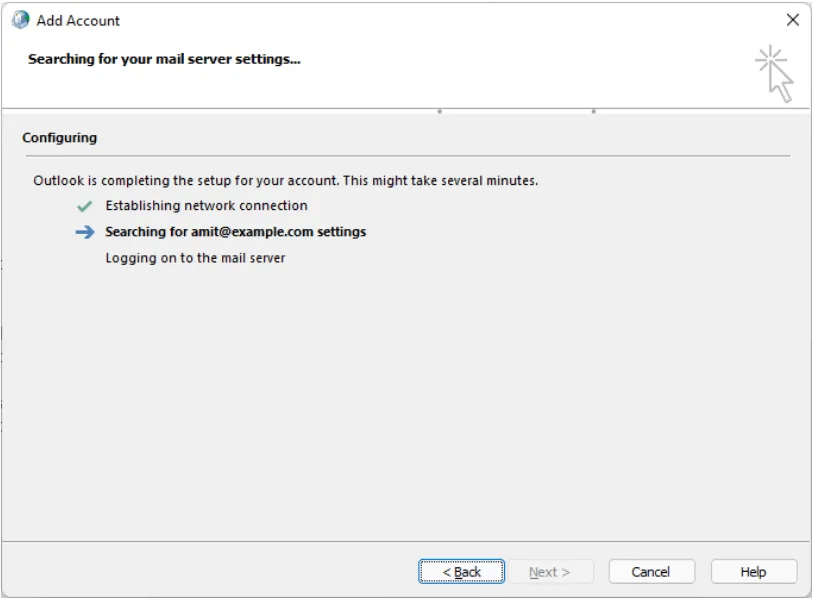Microsoft Exchange Autodiscover bug leaks hundreds of thousands of domain credentials
Security researchers have discovered a design flaw in a feature of the Microsoft Exchange email server that can be abused to harvest Windows domain and app credentials from users across the world.

Discovered by Amit Serper, AVP of Security Research at security firm Guardicore, the bug resides in the Microsoft Autodiscover protocol, a feature of Exchange email servers that allows email clients to automatically discover email servers, provide credentials, and then receive proper configurations.
The protocol is a crucial part of Exchange email servers as it allows admins an easy way to make sure clients use proper SMTP, IMAP, LDAP, WebDAV, and other settings.
But to get these automatic configurations, email clients typically ping a series of predetermined URLs derived from the user's email address domain:
- https://autodiscover.example.com/autodiscover/autodiscover.xml
- http://autodiscover.example.com/autodiscover/autodiscover.xml
- https://example.com/autodiscover/autodiscover.xml
- http://example.com/autodiscover/autodiscover.xml
Serper said he found that this autodiscovery mechanism used a "back-off" procedure in case it doesn't find the Exchange server's Autodiscover endpoint on the first try.
This "back-off" mechanism is the culprit of this leak because it is always trying to resolve the autodiscover portion of the domain and it will always try to "fail up" so to speak. Meaning, the result of the next attempt to build an autodiscover URL would be: http://autodiscover.com/autodiscover/autodiscover.xml. This means that whoever owns autodiscover.com will receive all of the requests that can't reach the original domain.
Amit Serper, AVP of Security Research, North America, Guardicore
Based on his finding, Serper said he registered a series of Autodiscover-based top-level domains that were still available online. This included:
- Autodiscover.com.br - Brazil
- Autodiscover.com.cn - China
- Autodiscover.com.co - Columbia
- Autodiscover.es - Spain
- Autodiscover.fr - France
- Autodiscover.in - India
- Autodiscover.it - Italy
- Autodiscover.sg - Singapore
- Autodiscover.uk - United Kingdom
- Autodiscover.xyz
- Autodiscover.online
The researcher said Guardicore ran honeypots on these servers in order to understand the scale of the problem.
For more than four months, between April 16, 2021, and August 25, 2021, Serper said these servers received hundreds of requests, complete with thousands of credentials, from users that were trying to set up their email clients, but their email clients were failing to find their employer's proper Autodiscover endpoint.
"The interesting issue with a large amount of the request that we received was that there was no attempt on the client's side to check if the resource is available or even exists on the server before sending an authenticated request," Serper explained in a report published today.
"Guardicore has captured 372,072 Windows domain credentials and 96,671 unique credentials from various applications such as Microsoft Outlook," the researcher added.
While sifting to the domains that connected to their honeypots, Serper said he found credentials for companies from multiple verticals, such as:
- Food manufacturers
- Investment banks
- Power plants
- Power delivery
- Real estate
- Shipping and logistics
- Fashion and jewelry
- and publicly traded companies in the Chinese market
All the collected credentials came via unencrypted HTTP basic authentication connections, but Serper also detailed in his report today ways to collect credentials from more secure forms of authentication such as NTLM and Oauth.
While Serper provided some mitigations to prevent these leaks for system administrators and email software makers, an update from Microsoft's side to the Autodiscover protocol design would also be needed.
Reached out for comment, Microsoft had the following to say about Guardicore's findings:
We are actively investigating and will take appropriate steps to protect customers. We are committed to coordinated vulnerability disclosure, an industry standard, collaborative approach that reduces unnecessary risk for customers before issues are made public. Unfortunately, this issue was not reported to us before the researcher marketing team presented it to the media, so we learned of the claims today.
Jeff Jones, Sr. Director, Microsoft
Article updated at 15:55 ET with comment from Microsoft.
Catalin Cimpanu
is a cybersecurity reporter who previously worked at ZDNet and Bleeping Computer, where he became a well-known name in the industry for his constant scoops on new vulnerabilities, cyberattacks, and law enforcement actions against hackers.


